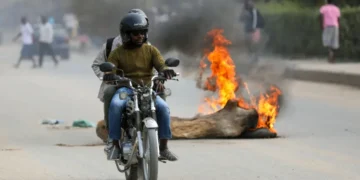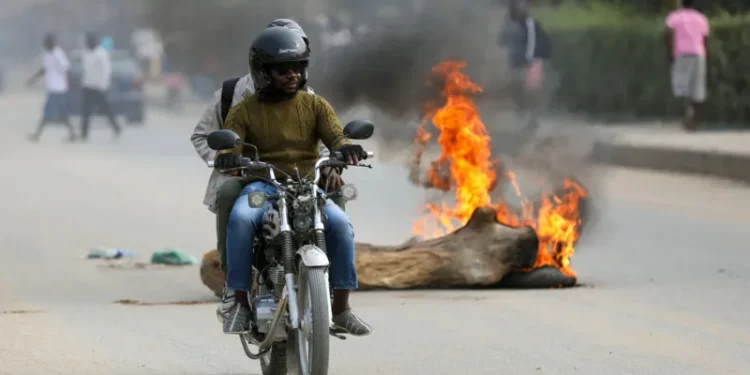By Enyichukwu Enemanna
At least three persons have been feared dead including a policeman in the ongoing demonstrations in Luanda, Angola’s capital against the cost of fuel.
The protest was ignited by a three-day strike by taxi drivers against rising petrol prices but has escalated into one of the most widespread and disruptive waves of protest the country has witnessed in recent years.
Thousands of people joined the demonstrations in Luanda on Monday, which saw roads blocked, shops looted and clashes between demonstrators and police.
“The fuel price issue is just the last straw that has reignited widespread public discontent… People are fed up. Hunger is rife, and the poor are becoming miserable,” a prominent local activist, Laura Macedo told journalists.
Police have arrested more than 100 people and condemned what they termed “acts of urban terror” including the destruction of 20 buses.
The strike was at the instance of taxi operators in response to the government’s decision to raise the price of fuel by over 33%.
The measure was introduced in early July as part of government’s plans to remove fuel subsidies in the oil-rich nation.
The decision has resulted in higher transportation fares for urban Angolans who rely on the taxis, as well as driving up the price of staple foods and other basic items.
President João Lourenço has however dismissed such concerns, saying that protesters are using petrol prices as a pretext to undermine the government.
“Even after the increase, the price of diesel in Angola remains around 40 US cents per litre, and there are not many countries in the world with prices this low,” he told CNN Portugal in a recent interview.
Arising from the protests, major shops, banks and other businesses on Tuesday morning were closed down. Some civil servants were also absent from work while staff of private companies stayed at home on the advice of their employers.




































